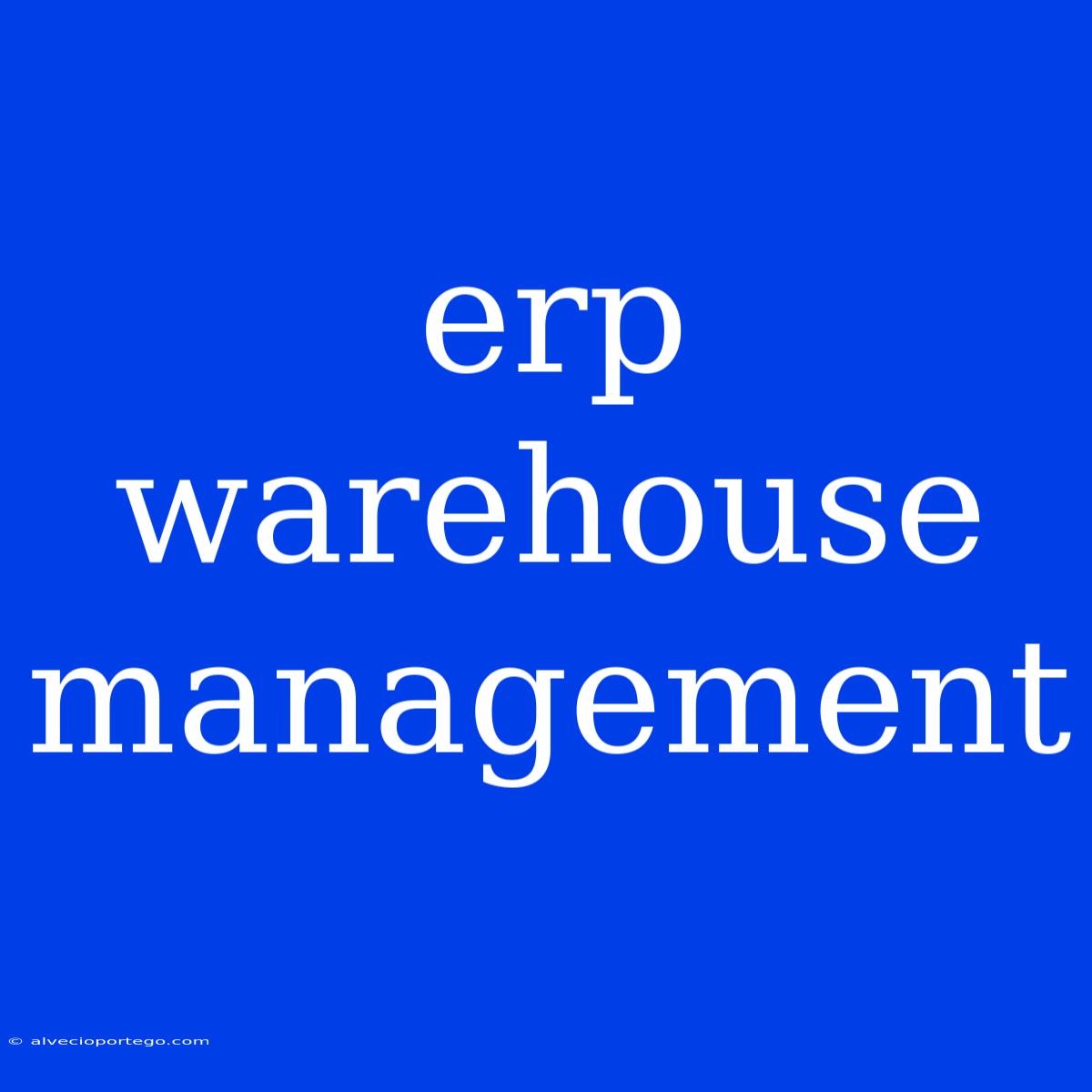ERP Warehouse Management: Optimizing Your Supply Chain
An efficient warehouse is the backbone of any successful business. It's where goods are received, stored, and shipped, impacting everything from customer satisfaction to profitability. Implementing an Enterprise Resource Planning (ERP) system with robust warehouse management capabilities can streamline your operations and drive significant improvements.
What is ERP Warehouse Management?
ERP warehouse management is an integrated system that uses software to manage all aspects of a warehouse, from inventory control and order fulfillment to shipping and receiving. This includes:
- Inventory Management: Tracking inventory levels, managing stock, and minimizing waste.
- Order Fulfillment: Streamlining the picking, packing, and shipping process.
- Warehouse Layout & Optimization: Planning and managing warehouse space, ensuring efficient use of resources.
- Labor Management: Tracking employee hours and productivity, optimizing workforce allocation.
- Shipping and Receiving: Managing inbound and outbound shipments, including receiving, verifying, and storing goods.
Benefits of ERP Warehouse Management:
1. Increased Efficiency: Automation and real-time data reduce manual processes and errors, resulting in faster turnaround times and improved productivity.
2. Improved Inventory Accuracy: Real-time tracking and accurate inventory counts minimize stockouts and overstocking, leading to cost savings and improved customer satisfaction.
3. Enhanced Visibility: Gain comprehensive insights into warehouse activities, from inventory levels to employee performance, enabling better decision-making.
4. Reduced Costs: Optimizing warehouse operations, minimizing waste, and streamlining processes lead to significant cost reductions in areas like labor, storage, and inventory management.
5. Enhanced Customer Satisfaction: Timely and accurate order fulfillment leads to increased customer satisfaction and loyalty.
Key Features of an ERP Warehouse Management System:
- Barcode and RFID Integration: Automated tracking of goods throughout the warehouse.
- Real-Time Reporting and Analytics: Provides data-driven insights for informed decision-making.
- Mobile Device Integration: Enables real-time access to warehouse data from anywhere.
- Advanced Warehouse Optimization Tools: Help you design efficient warehouse layouts and optimize resource allocation.
- Integration with Other Systems: Seamlessly integrates with other ERP modules, such as financial accounting, sales, and customer relationship management.
Choosing the Right ERP Warehouse Management System:
When selecting an ERP warehouse management system, consider factors such as:
- Business Size and Complexity: Choose a system that aligns with your current and future needs.
- Industry-Specific Features: Look for systems that cater to your industry's unique requirements.
- Scalability and Flexibility: Ensure the system can grow with your business needs.
- Integration Capabilities: Choose a system that integrates seamlessly with your existing systems.
- Vendor Support and Training: Select a vendor with a strong reputation for support and training.
Conclusion:
Implementing an ERP warehouse management system is an investment in efficiency, visibility, and profitability. By streamlining your warehouse operations and gaining valuable insights into your supply chain, you can improve customer satisfaction, reduce costs, and drive growth.

